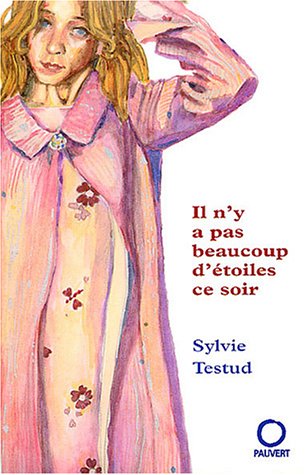 Better late than never, i have at last read Marjane Satrapi's 4 comic book saga Persepolis in which she retraces the story of Iran through the prism of her own experience, as a child suddenly covered in a black veil, a troubled teenager struggling with her identity and a woman butting against the repression of a fundamentalist misogynist regim reminiscent of that other repression - extreme to the absurd - imposed by the Taliban in Afghanistan until the US invasion.
Better late than never, i have at last read Marjane Satrapi's 4 comic book saga Persepolis in which she retraces the story of Iran through the prism of her own experience, as a child suddenly covered in a black veil, a troubled teenager struggling with her identity and a woman butting against the repression of a fundamentalist misogynist regim reminiscent of that other repression - extreme to the absurd - imposed by the Taliban in Afghanistan until the US invasion. Satrapi continues her exploration of the feminine condition in Iran in Embroideries, an endearing and loving ode to women of her family and their courage, humour and grace under repression. Finally, her Chicken with plums offers an infinitely moving and tender tale that immerses us into the intimate psyche of one of her uncles, a great musician whose life and death were marked by thwarted love, a universal story that Satrapi's quill makes so beautiful.
Satrapi continues her exploration of the feminine condition in Iran in Embroideries, an endearing and loving ode to women of her family and their courage, humour and grace under repression. Finally, her Chicken with plums offers an infinitely moving and tender tale that immerses us into the intimate psyche of one of her uncles, a great musician whose life and death were marked by thwarted love, a universal story that Satrapi's quill makes so beautiful.  A chance encounter on the shelves of my library brought me Azar Nafisi's Reading Lolita in Tehran as an excuse to continue my exploration of the lives of Iranian women. The book starts as something of a memoirs of a litterature teacher in Iran mixed with insightful and passionate thoughts on the works of Scott Fitzgerald, Henry James or Jane Austen. It then evolves into a more personal account of her life and that of her students, in particular those that come to her house for a clandestine reading club jokingly baptized "Jane (Austen)'s friends".
A chance encounter on the shelves of my library brought me Azar Nafisi's Reading Lolita in Tehran as an excuse to continue my exploration of the lives of Iranian women. The book starts as something of a memoirs of a litterature teacher in Iran mixed with insightful and passionate thoughts on the works of Scott Fitzgerald, Henry James or Jane Austen. It then evolves into a more personal account of her life and that of her students, in particular those that come to her house for a clandestine reading club jokingly baptized "Jane (Austen)'s friends". The relationship between the individual and society provides the backdrop to a story offering beautiful portraits of women. The author pays tribute to the integrity and courage of those who resist and she shakes with indignation when, after they are worn out day after day by the Iranian regime, something ends up breaking in them. Nafisi writes with respect, intelligence and undertone, in order to avoid falling into simplicism. She points out the flaws of western society that one of her students dreams as being an ideal way of life, but she also highlights how another of her students, profoundly religious, suffers to see her decision to wear the headscarf become devoid of its meaning when the regime makes it mandatory to wear it. How would her decision - symbolic of a personal and moral commitment - retain all its value when wearing the headscarf is imposed on all women who have to comply, whether it would be their choice or not?
The relationship between the individual and society provides the backdrop to a story offering beautiful portraits of women. The author pays tribute to the integrity and courage of those who resist and she shakes with indignation when, after they are worn out day after day by the Iranian regime, something ends up breaking in them. Nafisi writes with respect, intelligence and undertone, in order to avoid falling into simplicism. She points out the flaws of western society that one of her students dreams as being an ideal way of life, but she also highlights how another of her students, profoundly religious, suffers to see her decision to wear the headscarf become devoid of its meaning when the regime makes it mandatory to wear it. How would her decision - symbolic of a personal and moral commitment - retain all its value when wearing the headscarf is imposed on all women who have to comply, whether it would be their choice or not?As i closed this Iranian cycle, i felt once more how fiction - and art more generally - is invaluable when it allows to bring closer, create understanding and spark empathy for lives so distant from ours, by giving them flesh and soul.

